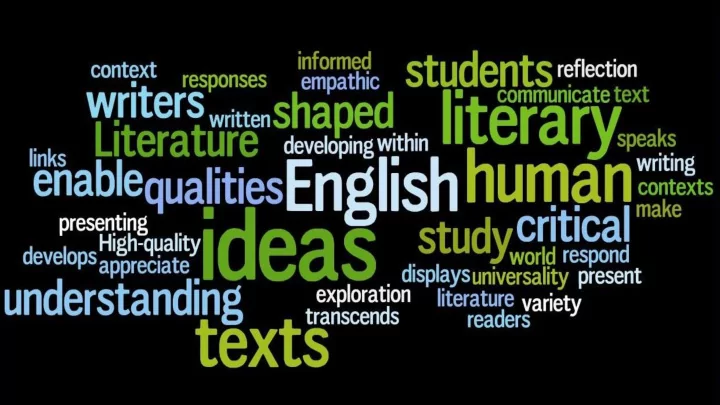

ENGLISH LANGUAGE GCSE
GCSE ENGLISH LANGUAGE READING; CAN YOU… • Read and understand a range of texts from the 19 th 20 th and 21 st century. These might be literature or literary non-fiction • Develop the skills for the reading section in both exams, where questions test a range of skills including comprehension, collating and ordering information from more than one source, comparing texts, and evaluating texts as a critical reader would • Acquire and apply a wide vocabulary – the texts will be complex, and in writing about them, students must be fluent themselves • Use specialist subject terms, for example word classes, grammatical terms and other specialist words like metaphor, image, simile
KEY SKILLS? Finding the implicit meaning in a text as well as what is explicit; inferring Commenting on and explaining how writers use language and structure to affect the reader Using evidence from the text to support your views Being able to use specialist terms Compare and contrast / critical evaluation / explore the writers’ perspectives
GCSE ENGLISH LANGUAGE WRITING; CAN YOU… Write effectively and coherently in standard English Write in a range of styles; argue/persuade and describe/narrate Use a wide vocabulary Use grammar correctly and punctuate accurately Edit and proof-read your work effectively
ENGLISH LITERATURE GCSE
GCSE ENGLISH LITERATURE; CAN YOU… Read, understand and respond to texts Maintain a critical style and develop an informed personal response • Use textual references, including quotations, to support and illustrate interpretations • Analyse the language, form, structure used by the writer to create meanings and effects, using relevant subject terminology where appropriate • Write about the context of the text and when it was written • Compare two poems
ENGLISH LITERATURE GCSE Paper 1 Paper 2 Shakespeare and the 19 th Century novel Modern texts and Poetry 2 extract-based tasks 3 tasks Requires knowledge of language and Response to the modern play structural features, characters and plot, (An Inspector Calls) and key themes Poetry comparison of Power and Conflict Close analysis of language and meaning, poems (anthology) interpretation and response to a whole Unseen poetry analysis and comparison text
SAMPLE POETRY TASK Task: A comparison of two poems, focussing on the following: The thoughts and feelings of the poets; and the impact these feelings have on the reader The writer’s intentions, and how they use language as a focus for their ‘message’ The contexts and the impact the context may have on the poem, and on the reader The methods the writer chooses to create particular images or moods in the poems
ENGLISH ‘FINAL LESSONS TIMETABLE’
REVISION SESSIONS: P6 A range of session times are available for your child: Tuesday, Wednesday, Thursday and Friday P6 sessions Topic and skills-based – all sessions throughout the week will cover the same focus on skills and topics rather than content Sessions are open to all pupils Both English Language and Literature skills will be covered Revision sessions do not replace independent study or lesson time; they are to extend and support the practice of key skills
MOST IMPORTANTLY… Make space for reading: encourage a wide range of reading across different texts. Read both fiction and non-fiction. Get copies of the Literature set texts – success comes from knowing the text really well – by reading and re- reading… Encourage your child to write – a blog, a letter to their MP , a diary, a journal or travel blog… even emails to family and friends. Explore the language use in your own lives – which expressions are creative and descriptive, which words match different moods?
Recommend
More recommend